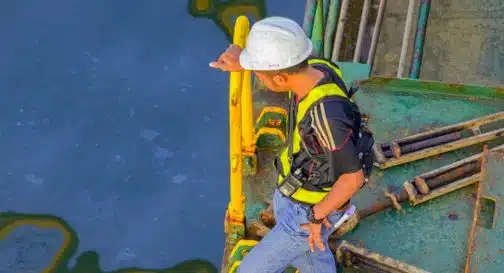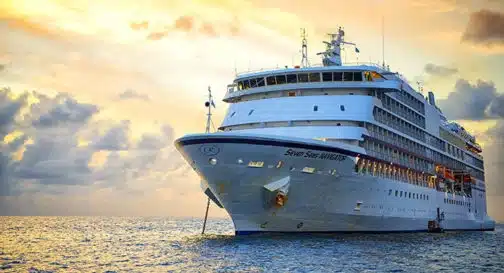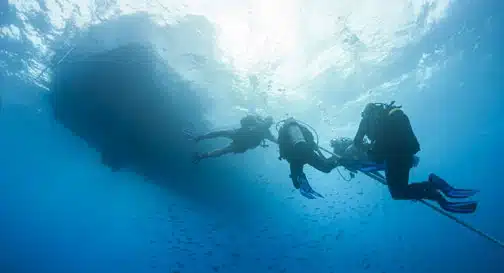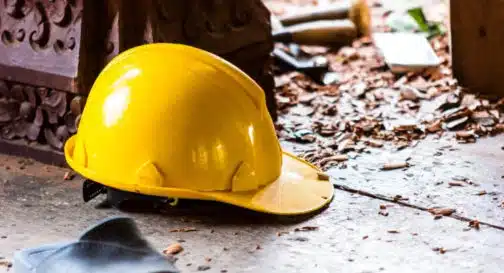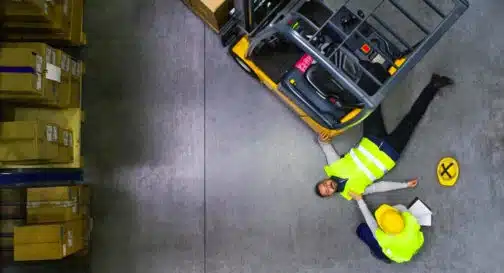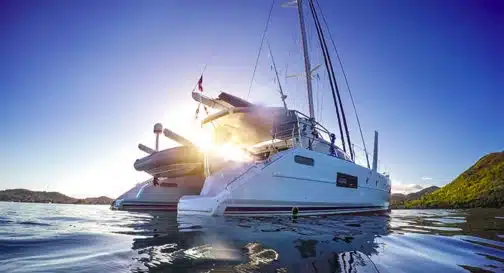Commercial Fisherman Accident Lawyer
Dedicated Legal Representation for Injured Victims of Boat Accidents
Recreational fishing is a harmless, gentle American pastime, but the fact is that commercial fishing—whether for tuna, lobster, or any other denizens of the sea—is one of the world’s most hazardous occupations. Commercial fishermen ply their trade in fair as well as foul weather and often stay out at sea for days, or even weeks, at a time.
What’s more, catching big fish like tuna requires the use of equally sizable fishing equipment, both to reel the fish in and to hoist it on board; crew members can easily be injured by snapping lines or wildly swinging winches.
With that said, though, the main hazard facing commercial fishermen is the same one that has afflicted sailors for thousands of years—drowning. According to the Centers for Disease Control, over 500 commercial fishermen died in the U.S. between 2000 and 2009, most of them due to drowning (after diving, tripping, losing their balance, falling overboard after an accident, or being swept overboard by a large wave, among other causes).
Many of these deaths could have been prevented if crew members had been equipped with personal flotation devices. The CDC also recommends regular safety drills and ship inspections and urges ship captains to pay more attention to hazardous weather and fishing conditions.
To put these numbers into perspective, between 1992 and 2009, the fatality rate for fishermen was 128 deaths per 100,000 workers, compared to 4 deaths per 100,000 workers for U.S. workers as a whole.
What Should You Do After a Boating Accident?
The aftermath of a boat collision or other kinds of commercial fishing boat accident can often be terrifying and traumatic. Despite the overwhelming nature of the accident, though, boat accident victims and injured fishermen must attempt to keep their heads. There are several steps you should take to preserve the value of your personal injury claim when you take legal action with the help of boating accident lawyers.
Following the boat accident, attempt to seek emergency medical care. Your health and well-being should be your top priority. Even if you believe that you have not suffered a serious injury, it is still important that you get professional medical treatment, as some injuries may develop or worsen with time.
Report the injury and the accident to the ship captain or immediate supervisor. Boat operators such as captains and other management staff should fill out a written record of the report. Obtain a copy of the report for your records.
If possible, take photos and videos of the accident scene, any visible injuries, damaged equipment, or other injured boat passengers.
While you should attempt to remain polite in conversations with others involved in the boating accident, you must never say you’re sorry, admit fault, or diminish the severity of your injuries. Never admit fault or discuss intimate details of the boating accident with anyone except your doctors and boating accident attorneys.
For assistance filing personal injury claims, it is recommended that you work with an experienced boat accident lawyer. Our law firm is dedicated to practicing cases of maritime law and representing the interests of injured fishermen and other maritime workers. Contact our law office to discuss your legal rights and options for recovering a fair settlement.
What Are the Responsibilities of the Boat Owner and Boat Operator?
Although there are certain unavoidable risks connected with working on a commercial fishing vessel, not all maritime injuries and fatalities can be chalked up to accidents.
Fishing boat owners have an ethical responsibility to outfit their crews with the necessary safety gear, including flotation devices, and captains should not make reckless decisions that adversely affect the health and well-being of their crew. In addition, fishing boat crews should be well rested, and workers should not be compelled to put in unnecessarily long shifts, where severe fatigue could cause fatal errors in judgment.
What Are Boat Operator Responsibilities Regarding Recreational Boating?
A slightly different set of considerations comes into play when a ship (and its crew) are hired for a recreational fishing expedition.
In this case, the crew, captain, and owner should be aware that not all the passengers will be equally experienced and should take care to provide all the necessary safety precautions (including personal flotation devices and, if necessary, instruction about reeling in large catches).
Boat accident injuries or deaths sustained during recreational fishing expeditions may well be actionable in court and can expose the ship’s owner, captain, and crew to significant damages.
What Are California’s Laws on Recreational Boating?
Several requirements must be followed if you want to spend time on California waterways. The California Department of Parks and Recreation establishes a set of rules that all boat operators must adhere to.
California boating laws include, but are not exclusive to, the following:
- All boat operators must have a valid California boater card for their personal watercrafts
- Boat operators must be at least 16 years old
- Anyone 16 or younger must be accompanied by someone 18 years old or older and the adult supervisor must have a California boater card
- There are no age restrictions for wind-powered boats under 30 feet long
- Qualifying vessels and personal watercraft should have a motor of 15 horsepower or more
- All California boaters must have a life jacket and always wear it
If you get hurt in a collision involving a personal watercraft (including jet skis) contact us to discuss your personal injury claim. As a victim, you have the legal right to pursue compensation from the at-fault party and anyone else involved in the cause of the accident.
How Does the Jones Act Apply to Commercial Boating Accidents?
Under the Jones Act, workers on commercial fishing boats have legal recourse if they’ve been injured because of the recklessness or negligence of the ship’s owner or captain or even of their fellow fishermen and other maritime workers.
At the very least, plaintiffs are entitled to compensation for their medical bills and convalescence, and they may be owed additional damages in cases of gross negligence (such as failing to properly equip the boat with first-aid equipment or a working radio).
What Are Common Causes of Boat Accidents Off the California Coastline?
While many boat operators and captains are familiar with the rules and regulations, accidents can and do happen. Sometimes a boating accident can happen to even the most experienced operators, potentially resulting in serious injuries or even death to fishermen and boat passengers.
Among the most common causes of boating accidents in California include the following:
- Boat collisions
- Boating under the influence of alcohol, which is prohibited, but accounts for nearly a third of all boat accidents
- Captain or crew acting recklessly in the performance of their duties
- Crane and winch failures
- Crushing injuries caused by limbs or fingers caught in machinery, netting, or rigging
- Drunk boating incidents
- Equipment failure, potentially caused by defective boating equipment
- Exposure to cold water or extreme weather elements, which can lead to sun exhaustion or hypothermia
- Falling objects landing on a person’s head, back, or neck
- Falling overboard, which can lead to drowning or near-drowning incidents
- Falls from great heights, like falls through open hatches
- Fatigue-related incidents, such as repeated muscle strain
- Hazardous conditions left unchanged or unaddressed
- Human error
- Inappropriate passenger behavior
- Inexperienced boaters in command of a vessel
- Infections caused by handling marine life and equipment in oceanic environments
- Line handling
- Operator inattention
- Severe weather
- Sharp equipment and marine life can cause cuts, scrapes, and abrasions
- Slips and trips on slippery decks, ladders, and gangways
- Speeding boaters
- Toxic carbon monoxide produced by boat engines
What Are Common Serious Injuries Suffered in Boat Collisions?
Boating accidents can result in serious injuries to boat operators, deckhands, fishermen, and passengers alike. If you’ve been in a boating incident, make sure to get a copy of the accident report for your boating accident lawyer, as this proves to be valuable evidence when pursuing an injury claim.
Common fishing boat accident injuries include the following:
- Back and neck injuries
- Broken bones
- Chemical and fuel burns
- Concussions and other forms of head trauma
- Crushing injuries and degloving injuries
- Cuts and bruises
- Disfigurement
- Drowning or near drowning
- Exposure injuries
- Eye injuries, including loss of sight
- Hand, finger, and arm injuries
- Infections
- Loss of limbs
- Muscle strains and tears
- Musculoskeletal injuries
- Post-traumatic stress disorder
- Spinal cord injuries
- Traumatic brain injury
- And more
Many accidents result in severe injuries and those injured victims may have options for recovering compensation with the help of a boating accident attorney. Contact our law firm to schedule your free initial consultation with our legal team today.
Who Can Be Held Liable for a Boat Accident?
In a commercial fishing injury claim, the burden of proof rests with the injured party. You and your attorney must demonstrate that the boat owner, boat operator, or other passenger or fishermen acted negligently or was not paying attention and this caused an accident which resulted in your injuries.
Negligence may be determined if the boat captain, business owner, or boat operator owed the victim a certain duty of care. Your boating accident lawyer must show that the duty of care was either ignored or violated. As a result of this breach of duty, an accident happened, and you suffered injuries and other damages.
A partial list of parties who may be found at fault and owe you financial compensation after a boating accident may include the following:
- Boat captains and operators
- Marina owners and operators
- Boat passengers
- Cruise operation staff and management
- Boat owners
- Lifeguards
- Boat manufacturers and the manufacturers of defective parts
- Rental companies
What Compensation is Potentially Recoverable with a Successful Boating Accident Claim?
With a successful personal injury case, it is possible to recover a fair settlement for your injuries and other losses. Boat accident victims who retain professional legal representation from personal injury attorneys stand to maximize the recoverable compensation in their case.
Potential financial recovery may include the following economic and non-economic damages:
- Disability, disfigurement, or dismemberment
- Emotional distress and mental anguish compensation
- Fees for emergency response and ambulance transport
- Funeral expenses and loss of financial support
- Legal fees
- Loss of enjoyment of life
- Lost companionship or consortium
- Lost wages and lost earning capacity
- Maintenance and cure
- Past medical bills and future medical expenses
- Physical pain and suffering compensation
- Property damage
- Rehabilitation and physical therapy expenses
- Wrongful death benefits
Contact our law firm to schedule a free, no-obligation case evaluation with our legal staff today.
Schedule a Free Consultation with an Experienced Commercial Fishing Boat Accident Attorney Today
If you were injured in a boating accident, or your loved one was injured, was killed, or drowned on a commercial fishing expedition, you’re entitled to know the exact circumstances of the accident, and you may be entitled to damages if negligence or recklessness can be proved.
To discuss your case for free, contact a fishing boat accident attorney immediately. There is a statute of limitations on filing boating accidents and wrongful death claims, and the sooner you call our law offices, the sooner we can begin building a strong case for you.
You can reach our law offices at 310-773-5207.

